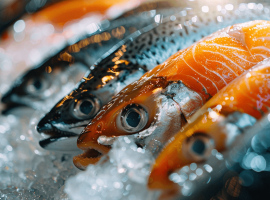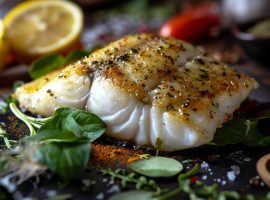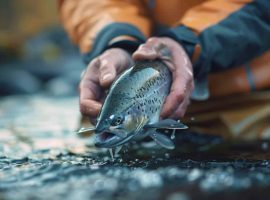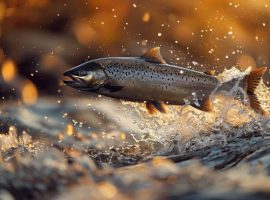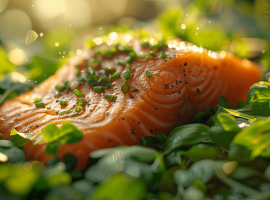Exploring Vitamin D-Rich Fish Varieties
When seeking to bolster your intake of vitamin D through diet, certain fish emerge as superior sources. Salmon, particularly wild-caught, stands out for its high vitamin D content, with a single serving providing a substantial portion of the recommended daily intake. Mackerel, another oily fish, is similarly rich in vitamin D, offering a wealth of this essential nutrient alongside heart-healthy omega-3 fatty acids.
Oily Fish: A Comparison of Vitamin D Levels
The vitamin D levels in oily fish such as salmon and mackerel are significantly higher compared to leaner fish. This is due to the fat content in these species, which serves as a reservoir for vitamin D. For those looking to diversify their diet, herring and sardines are also excellent choices, providing similar nutritional benefits.
Lesser-Known Sources of Vitamin D
Beyond the popular choices, certain lesser-known fish such as halibut and catfish also offer appreciable amounts of vitamin D. Including a variety of fish in your diet not only ensures a broader spectrum of nutrients but also introduces new flavours and culinary experiences.
Ensuring Quality and Freshness
Frozen Fish Direct” prioritises the freshness and nutrient retention of their offerings by employing rapid freezing techniques post-catch. This method preserves the vitamin D content, ensuring that you receive the full health benefits of these fish. Their selection process emphasises both variety and quality, providing you with a range of options to meet your dietary needs.
Wild-Caught vs. Farmed: Assessing Vitamin D Levels

When considering the vitamin D content in fish, the method of sourcingwild-caught or farmedcan play a significant role. Research indicates that wild-caught fish often have higher levels of vitamin D compared to their farmed counterparts. This discrepancy is attributed to the natural diet and environment of wild fish, which are rich in nutrients that promote vitamin D synthesis.
Vitamin D Variance in Aquaculture
Farmed fish, while a more controlled and sustainable source of seafood, may have varying levels of vitamin D due to differences in feed and exposure to natural light. “Frozen Fish Direct” ensures that both wild and farmed fish meet quality standards by sourcing from reputable suppliers who adhere to strict nutritional guidelines.
Environmental Impact on Fish Selection
Choosing between wild and farmed fish also involves environmental considerations. Wild fish populations can be threatened by overfishing, whereas aquaculture presents challenges such as water pollution and habitat destruction. Frozen Fish Direct” is committed to environmental stewardship by offering a selection of sustainably sourced fish, providing you with options that contribute to the health of both you and the planet.
By selecting fish from “Frozen Fish Direct,” you are provided with not only a nutritious component of your diet but also the assurance of environmentally conscious choices.
Nutritional Significance of Vitamin D in Fish
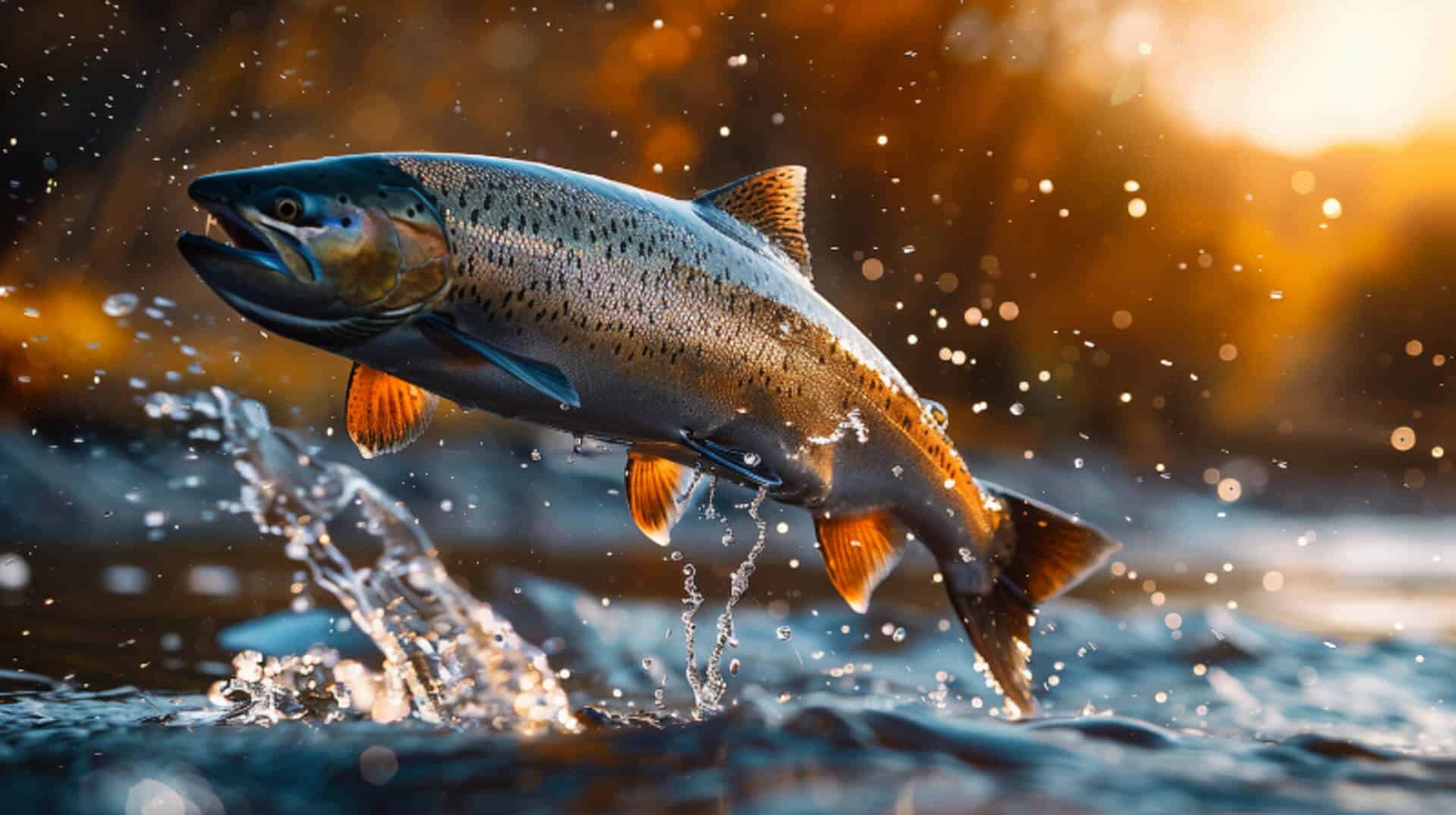
Vitamin D, particularly in the form of D3 found in fish, is essential for the maintenance of bone and muscle health. It facilitates the absorption of calcium and phosphorus, minerals critical for bone strength. Regular consumption of vitamin D-rich fish such as salmon, mackerel, and herring can help prevent osteoporosis and maintain muscle function, reducing the risk of falls and fractures in older adults.
Immune Function and Disease Prevention
Vitamin D plays a pivotal role in immune system modulation. It activates key peptides in the immune response that target pathogens, reducing the risk of infections. Adequate intake of vitamin D from fish may also contribute to the prevention of autoimmune diseases and certain forms of cancer.
Cognitive and Mental Health Benefits
The omega-3 fatty acids in fish, combined with vitamin D, are beneficial for brain health and cognitive function. They have been associated with a lower risk of depression and a potential to improve mood. The synergistic effect of these nutrients in fish makes them a superior source of vitamin D compared to supplements alone.
Comparative Health Advantages
Fish stands out as a natural source of vitamin D, offering additional health benefits over synthetic supplements. The bioavailability of vitamin D from fish is higher, meaning your body can absorb and utilise it more effectively. This, coupled with the presence of omega-3 fatty acids, makes fish a comprehensive dietary choice for maintaining overall health.
Culinary Techniques to Maximise Vitamin D Retention

Preserving Vitamin D During Cooking
To maintain the high levels of vitamin D in fish, certain cooking methods are more effective than others. Grilling, baking, and steaming are preferred techniques that preserve the integrity of vitamin D. It is advisable to avoid deep-frying, as high temperatures can degrade the vitamin D content.
Enhancing Vitamin D Absorption
Incorporating fats in the cooking process can aid in the absorption of vitamin D. Preparing fish with olive oil or serving it with a side of avocado can enhance the nutrient’s bioavailability. “Frozen Fish Direct” recommends these methods to ensure you receive the full benefits of vitamin D in their products.
Recipe Suggestions for Vitamin D-Rich Fish
Frozen Fish Direct” offers a variety of recipes that highlight the natural vitamin D content in their fish. Some ideas include:
- Baked salmon with a drizzle of olive oil and lemon
- Grilled mackerel with a side of mixed greens
- Steamed herring served over a bed of quinoa
These dishes not only provide a delicious meal but also contribute to your daily vitamin D intake, supporting overall health and well-being.
Synthesising Vitamin D: Sunlight and Seafood

The Synergy of Sunlight and Dietary Vitamin D
Sunlight exposure is the primary natural source of vitamin D for humans, as the skin synthesises this nutrient upon exposure to UVB rays. However, geographical location, season, and lifestyle can limit sun exposure, making dietary sources like vitamin D-rich fish essential. “Frozen Fish Direct” provides a selection of such fish, ensuring you can maintain adequate vitamin D levels even when sunlight is scarce.
Climate Constraints on Vitamin D Synthesis
In regions with limited sunlight, especially during autumn and winter months, relying solely on the sun for vitamin D can lead to deficiencies. This is where incorporating fish high in vitamin D, such as salmon and mackerel, becomes crucial for maintaining health.
Balancing Diet and Sunlight for Optimal Vitamin D
To achieve optimal vitamin D levels, “Frozen Fish Direct” suggests a balanced approach:
- Aim for moderate, regular sun exposure when possible.
- Include vitamin D-rich fish in your diet 2-3 times per week.
- Consider vitamin D supplements if you’re in a high-risk group for deficiency.
Year-Round Vitamin D Strategies
Frozen Fish Direct” offers these tips for year-round vitamin D maintenance:
- In summer, balance sun exposure with fish consumption to avoid over-reliance on either source.
- In winter, increase fish intake and consider supplements if necessary.
- Choose a variety of fish to enjoy different flavours while ensuring a steady supply of vitamin D.
Addressing Contaminant Concerns in Fish Consumption

Identifying Low-Contaminant Fish Options
Consumers seeking the health benefits of vitamin D-rich fish must also navigate the risks of contaminants like mercury. To minimise exposure, it is recommended to choose smaller fish and those lower on the food chain, such as sardines and trout, which typically accumulate fewer toxins.
“Frozen Fish Direct” Safety Measures
“Frozen Fish Direct” prioritises product safety by:
- Sourcing from suppliers who adhere to strict contaminant regulations.
- Regularly testing fish batches for mercury and other harmful substances.
- Providing transparent information about the origin and handling of their seafood.
Safer Fish Species Selection
When considering contaminant levels, certain fish species are safer choices:
- Wild-caught salmon and mackerel are known for lower mercury content.
- Farmed trout and Arctic char are raised in controlled environments to reduce contaminant risks.
By selecting fish from “Frozen Fish Direct,” customers can enjoy the vitamin D benefits of seafood with confidence in the safety and quality of their choices.
Nutrient Synergy in Vitamin D-Rich Fish
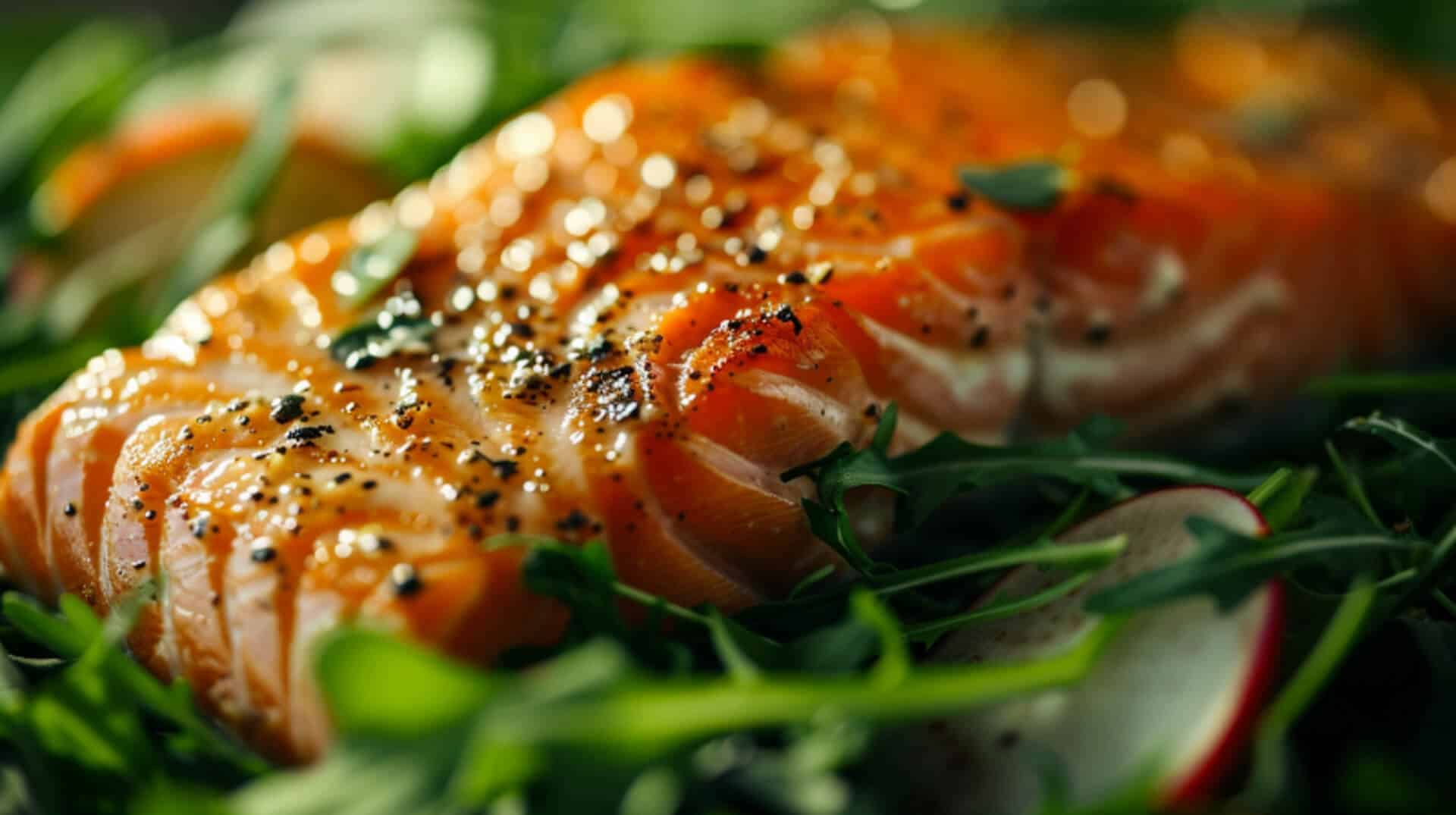
Fish is not only a valuable source of vitamin D but also a treasure trove of other essential nutrients that work synergistically to bolster health. The presence of omega-3 fatty acids, iodine, and various vitamins and minerals in fish enhances the efficacy of vitamin D, contributing to a well-rounded nutritional profile.
Omega-3 Fatty Acids and Iodine: Partners in Health
Omega-3 fatty acids, particularly EPA and DHA, are known for their anti-inflammatory properties and their role in heart and brain health. When combined with vitamin D, these fatty acids may help reduce the risk of chronic diseases. Iodine, another crucial nutrient found in fish, supports thyroid function and, alongside vitamin D, aids in maintaining a healthy metabolism.
Comprehensive Health Benefits
The combination of vitamin D with these nutrients can lead to improved health outcomes:
- Bone Health: Vitamin D and omega-3s are vital for bone density and strength.
- Cognitive Function: DHA is essential for brain health, and vitamin D has been linked to cognitive performance.
- Cardiovascular Health: Omega-3s reduce triglycerides, and vitamin D has a role in blood pressure regulation.
Balanced Nutrient Profile Offerings
Frozen Fish Direct” offers a selection of fish that provides a balanced nutrient profile, ensuring you receive a spectrum of benefits with each serving. Their offerings include:
- Salmon: High in vitamin D and omega-3 fatty acids.
- Mackerel: Rich in vitamin D and provides a good source of iodine.
- Herring: Offers a combination of vitamin D, omega-3s, and other essential nutrients.
By choosing from “Frozen Fish Direct,” you’re not only addressing your vitamin D needs but also supporting overall health through a diverse intake of vital nutrients.
Adhering to Vitamin D Intake Guidelines Through Fish Consumption

Current Vitamin D Intake Recommendations
Health authorities recommend varying amounts of vitamin D depending on age, gender, and life stage. Generally, adults require 600-800 IU (15-20 micrograms) per day, while older individuals may need more to maintain bone health. Fish such as salmon, mackerel, and herring are excellent sources, with a single serving providing a substantial portion of these requirements.
Tailoring Fish Intake for Vitamin D
To meet the recommended vitamin D intake, individuals should aim to consume at least two servings of fatty fish per week. This can be adjusted based on specific dietary needs and the vitamin D levels of different fish species.
Considerations Across Demographics
Pregnant women, breastfeeding mothers, and the elderly have higher vitamin D needs. “Frozen Fish Direct” assists these groups by offering a range of vitamin D-rich fish, ensuring they can select options that cater to their increased requirements.
“Frozen Fish Direct” and Nutritional Support
“Frozen Fish Direct” aids customers in meeting their dietary needs by:
- Providing detailed nutritional information for each fish product.
- Offering a diverse selection of fish high in vitamin D.
- Suggesting optimal serving sizes to align with health guidelines.
Through these measures, “Frozen Fish Direct” supports customers in making informed choices to achieve a balanced diet rich in vitamin D.
Sustainable Fishing and Vitamin D-Rich Seafood

Sustainable fishing practices are essential to maintaining the health of marine ecosystems and ensuring the long-term viability of fish populations. These practices can influence the vitamin D content in fish, as sustainably sourced fish are often caught or farmed in environments that mimic their natural habitats, which can be conducive to higher nutrient levels.
Health and Environmental Benefits of Sustainable Seafood
Choosing sustainably sourced fish supports not only environmental health but also personal well-being. Sustainable fishing limits bycatch, reduces habitat damage, and helps maintain the natural nutrient cycles that fish depend on, potentially leading to higher vitamin D content.
“Frozen Fish Direct” Commitment to Sustainability
Frozen Fish Direct” is committed to sustainability by:
- Offering seafood certified by the Marine Stewardship Council (MSC) and Aquaculture Stewardship Council (ASC).
- Providing transparent sourcing information to ensure customers are informed about the origins of their seafood.
Identifying Sustainable Seafood
When selecting fish, consumers should look for certifications such as MSC and ASC labels, which indicate that the seafood has been sourced following rigorous environmental standards. These certifications are a testament to the commitment of “Frozen Fish Direct” to offer products that are not only nutritious but also ethically sourced.
Combatting Vitamin D Deficiency with Fish
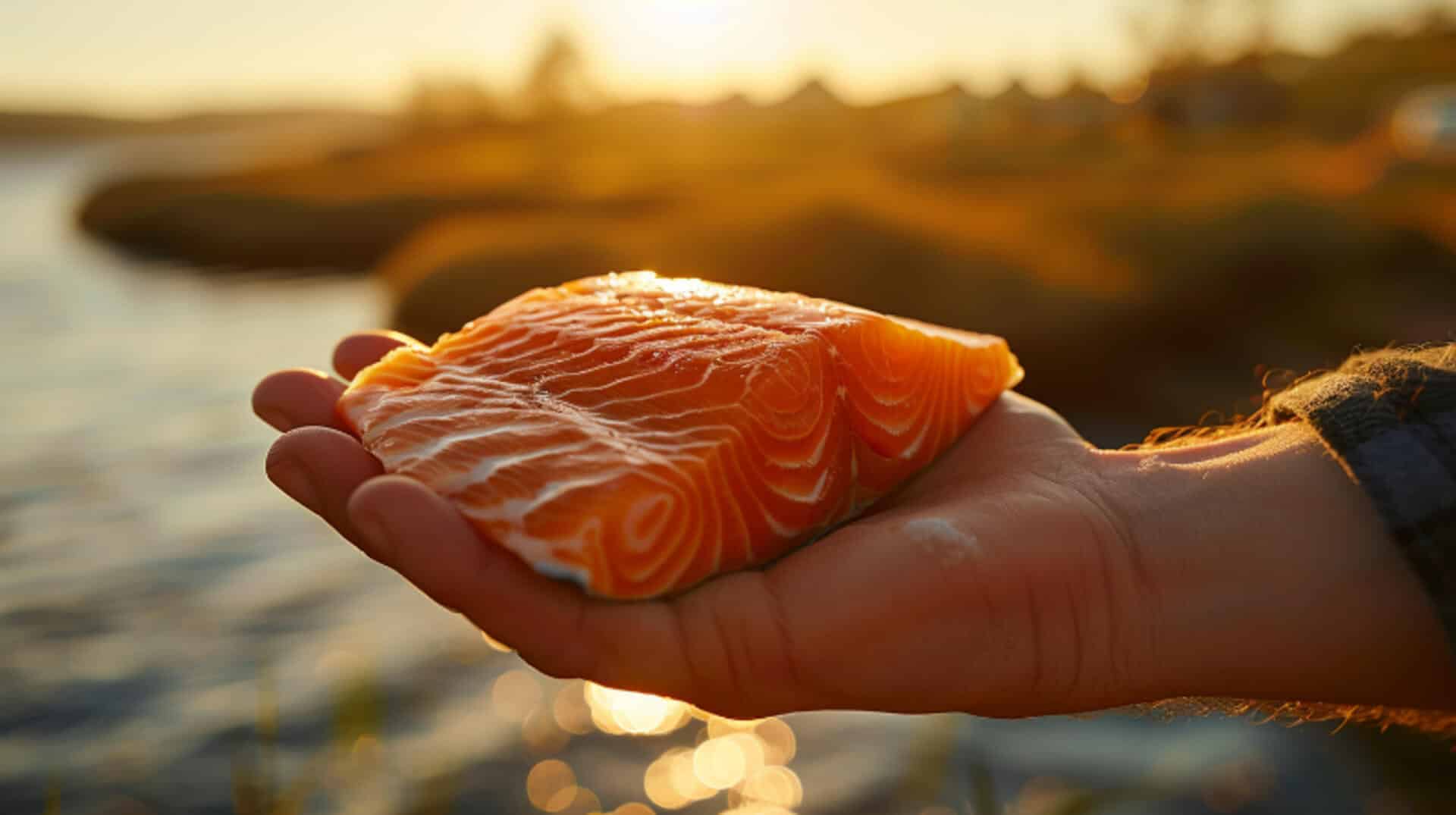
Vitamin D deficiency is a global health concern, with risk factors including limited sun exposure, darker skin pigmentation, older age, and dietary insufficiencies. Regular consumption of vitamin D-rich fish, such as salmon, mackerel, herring, and sardines, can significantly contribute to the alleviation of deficiency risks.
Recognising Deficiency Symptoms
Symptoms of vitamin D deficiency encompass fatigue, bone pain, muscle weakness, and mood changes. Incorporating fish into your diet can help address these symptoms by providing a natural source of vitamin D, which is essential for bone health and metabolic function.
“Frozen Fish Direct” and Vitamin D Accessibility
“Frozen Fish Direct” plays a pivotal role in providing accessible vitamin D solutions by delivering a variety of frozen fish, rich in vitamin D, directly to your doorstep. This service ensures that regardless of seasonal changes or geographic location, you have a consistent source of this crucial nutrient.
Seasonal Variations in Vitamin D Availability from Fish
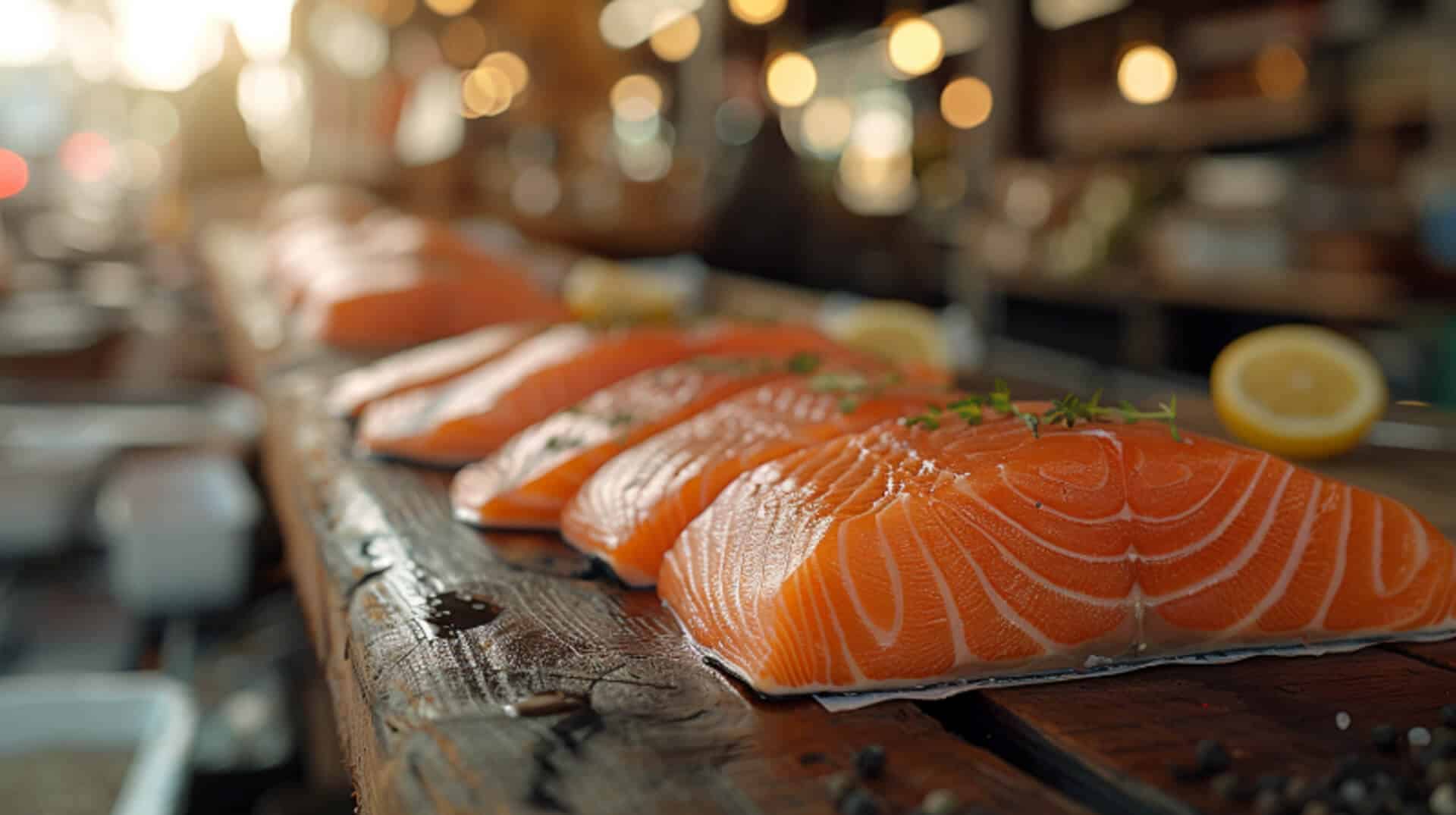
Seasonal changes can significantly influence the vitamin D content in fish. During the sunnier months, fish may have higher vitamin D levels due to increased natural sunlight exposure, which is essential for vitamin D synthesis in marine life. Conversely, during the winter, when sunlight is scarce, fish vitamin D levels can be lower.
Seasonal Fish Selection for Optimal Vitamin D
To maintain adequate vitamin D intake throughout the year, it is beneficial to know which fish are available and rich in vitamin D during different seasons:
- Spring/Summer: Opt for fatty fish like salmon, mackerel, and herring, which are plentiful and at their peak vitamin D levels.
- Autumn/Winter: Sardines and cod, often caught during these seasons, can provide necessary vitamin D.
Adapting Diets to Seasonal Supply
Consumers can adapt their diets to these seasonal variations by:
- Increasing consumption of vitamin D-rich fish during seasons with lower sunlight exposure.
- Incorporating a variety of fish throughout the year to ensure a consistent intake of vitamin D.
“Frozen Fish Direct” Ensuring Year-Round Vitamin D Access
“Frozen Fish Direct” offers a diverse selection of frozen fish, ensuring that you have access to vitamin D-rich options regardless of the season. Their offerings include both wild-caught and sustainably farmed fish, providing flexibility and convenience in meeting your nutritional needs all year round.
Personalised Nutritional Guidance at “Frozen Fish Direct”
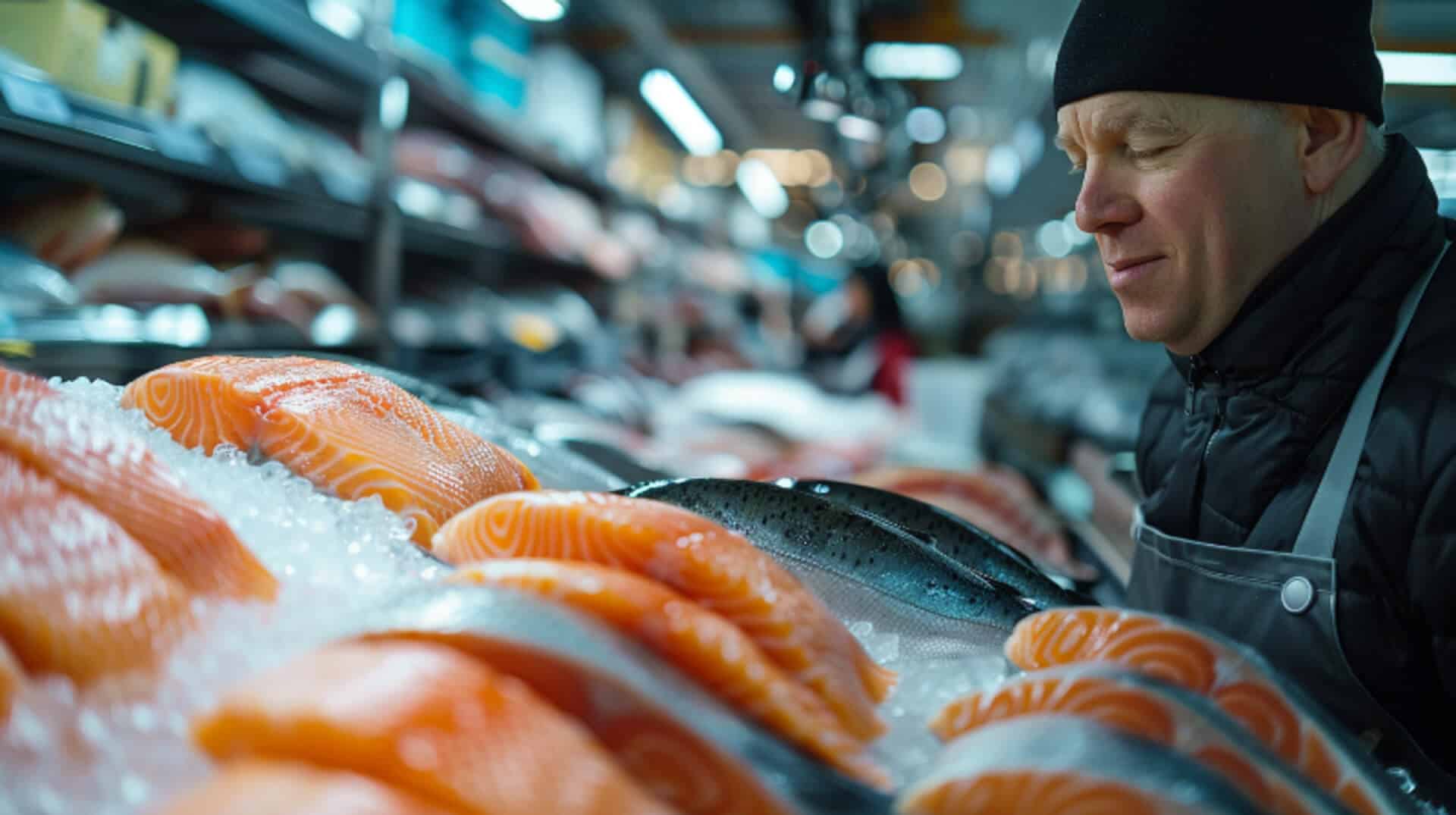
Tailored Recommendations for Vitamin D-Rich Fish
“Frozen Fish Direct” offers personalised recommendations to ensure you meet your vitamin D needs through fish consumption. Customers can receive tailored advice by:
- Contacting the customer service team for individualised suggestions based on dietary preferences and nutritional requirements.
- Utilising the online platform to philtre fish options by vitamin D content.
Nutritional Assistance Services
To assist with nutritional choices, “Frozen Fish Direct” provides:
- Detailed nutritional profiles for all fish products, highlighting vitamin D levels.
- Expert articles and resources on the health benefits of various fish.
Accessing Information on Fish and Health Benefits
For more information about the health benefits of fish, consumers can:
- Visit the “Frozen Fish Direct” website for a comprehensive library of articles and research.
- Subscribe to newsletters for the latest updates on seafood nutrition.
Informed Dietary Decisions Support
“Frozen Fish Direct” supports informed dietary decisions by:
- Offering transparent sourcing information, ensuring you understand where and how your fish is obtained.
- Providing guidance on how to incorporate fish into a balanced diet for optimal health benefits.


